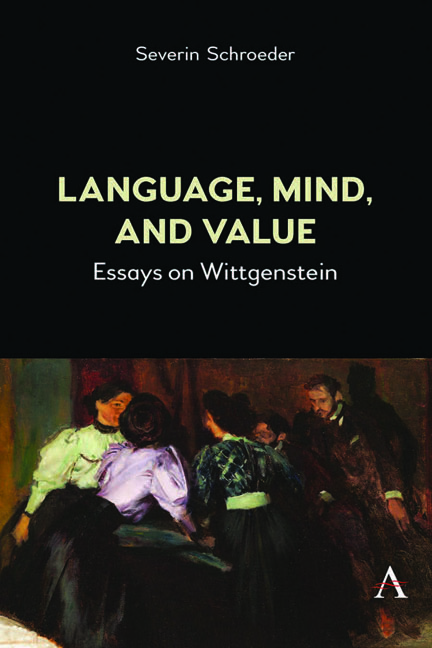1 - Wittgenstein on Grammar, Rules, and Norms
Published online by Cambridge University Press: 13 April 2024
Summary
Grammar: the rules of language
‘Grammar’ is Wittgenstein's preferred term for the workings of a language: the system of rules that determine linguistic meaning. A philosophical study of language is a study of ‘grammar’, in this sense, and insofar as any philosophical investigation is concerned with conceptual details, which manifest themselves in language, it is a grammatical investigation.
In the Tractatus Logico-Philosophicus, Wittgenstein offered a mathematical picture of language, presenting language as a calculus. The essence of language, supposedly found in the general form of the proposition, was given by a simple formula (TLP 6). Like a calculus, language was claimed to be governed by syntactic rules: (i) formation rules about the licit combination of names to form elementary propositions; (ii) formation rules about the licit combination of elementary propositions to make complex propositions; and finally (iii) truth-table rules, which enable us to identify logical truths and entailments. Notoriously, the existence of the first type of rule remained a postulate. As no examples of actual names were given, the rules governing their use could, of course, not be presented either. Moreover, Wittgenstein insisted rather perversely that no syntactic rule could be meaningfully stated.
When Wittgenstein grew dissatisfied with this view of language, it was not the idea that language was essentially rule-governed that he found fault with. On the contrary, that idea he held on to emphatically, at least until about 1936, only correcting his account of what those rules were and how they functioned. In fact, it would not be much of an exaggeration to say that Wittgenstein's break with his early philosophy was largely due to a careful reconsideration of the role of rules in language. Roughly speaking, while the author of the Tractatus thought that rules could work in secret and that their workings had to be discovered and analysed (just as one has to discover and analyse invisible chemical processes), the Wittgenstein of the 1930s realised that language is an artefact and, to the extent to which it is governed by rules, those rules must be made and applied by us (BB 27–28; BT 268).
Information
- Type
- Chapter
- Information
- Language, Mind, and ValueEssays on Wittgenstein, pp. 3 - 20Publisher: Anthem PressPrint publication year: 2024
